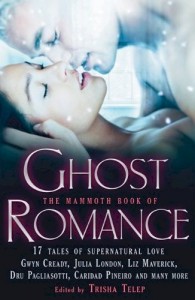 Flax is very nearly a weed – popping up volunteer-style just about everywhere. And yet, the blue flowers almost luminesce, making up for everything.
Flax is very nearly a weed – popping up volunteer-style just about everywhere. And yet, the blue flowers almost luminesce, making up for everything.
Selling out. It’s the cry of the artist. The accusation of the betrayed fan. I’ve blogged before about whether I think this is a real concept and where it came from. Essentially, for a writer, it’s sacrificing the story for commercial gain. That can mean even the gain of not violating an existing contract. We’ve all seen it happen. Charlaine Harris reportedly kept writing the Sookie Stackhouse books long after she wanted to. I would say that I’d love to have that problem – deciding between writing a book I don’t care about and a multi-million dollar contract, but I think it would be an extraordinarily painful decision to make.
All the same, I think brand new authors, especially pre-pubbed authors, worry about this a great deal. Maybe it’s because the artistic vision, the fledgling storyteller is so very fragile and new. It’s very difficult to know – definitely an acquired skill – how to separate good feedback from bad. Agents and editors famously reject anything that’s too outside the marketing box, even as they ask for “fresh ideas.” It takes time and confidence to know when to believe in a story nobody wants to buy. Because, sometimes, it can be true that your carnivorous shape-shifting sunflower story is and idea that plain should just not ever see the light of day.
The other end of the spectrum is writing to spec. The worst examples are those authors who get into writing particular series, like Vampire Diaries, where they have no artistic control, a corporate ideal dictates the characters and stories and straying from dogma is brutally punished.
As with all things, there’s a place somewhere in the middle. I’ve discovered it gets easier to find that sweet spot once you have a good editor relationship.
See, when you’re a new writer, you’re nearly throwing stuff at the wall to see what sticks. Some are better than others at writing for the market, knowing what kind of thing sells fast and what doesn’t. I have a friend who’s an NYT Bestselling Author who absolutely planned her series with that goal. I, myself, am terrible at this. I tried the same thing, the same approach she did, and my “fresh take” on things is apparently so out in left field that no one has any idea how they’d sell it. So far, I have two totally different novels that have decidedly not stuck to the wall. They slide off into a disheartingly floppy pile on the floor. Sometimes I just let them lie there for a while.
But others *have* stuck.
And there, my friends, is the key.
Because once you’ve sold that book to an editor who loves you (and she will or she wouldn’t have bought your book – my editor Deb recently tweeted that part of her decision to buy a book hinges on whether she loves it enough to read it 4-5 more times in the course of editing, a hell of a lot of love), then you have a relationship where you can discuss the next story. In my case, I don’t have contracts for the next books, so they’re always careful not to guarantee me anything. Which is good for me because I don’t have to guarantee anything either. But they will give you an idea of will or won’t work for them. Editor Grace guided me towards a different word count and essential elements she’d like to see. I wrote Hunting the Siren with those guidelines in mind, but it was still my story. When I mentioned to Editor Deb what I was working on as a follow-up to Sapphire, she pointed out a few things that would make it a hard sell to the acquisitions team. I set that story aside and wrote Platinum instead, which the acquisitions team snapped right up.
Is this selling out? I just don’t think so. Mainly because I’m still writing all of my other stuff. It might also be that I have two fabulous editors who really respect that writing isn’t something that can be controlled and dictated. They give me freedom, but they also give me guidance for the market. That’s their part of the job, as far as I’m concerned.
And heck, at least they’re not cluttering up my kitchen floor.
 One of my favorite restaurants anywhere – the courtyard at 82 Queen.
One of my favorite restaurants anywhere – the courtyard at 82 Queen.







